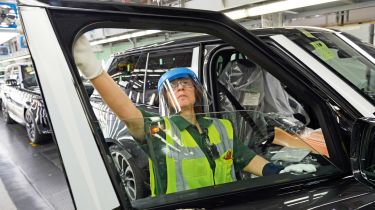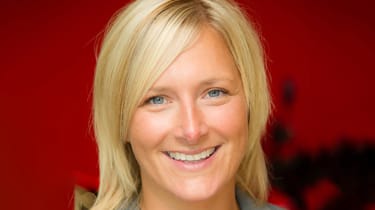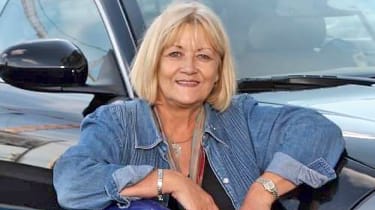Women in the automotive industry 2022: insight on gender equality
To celebrate International Women's Day, we take a look at the opportunities and obstacles faced by women in the UK's automotive industry

International Women’s Day is celebrated today, but how is the UK’s automotive industry faring in the gender equality fight?
We polled some of the UK’s leading female movers and shakers for their views on the opportunities and obstacles faced by women working across the car industry. We’re also sharing figures from the Government’s gender pay gap database, to see how a variety of Britain’s biggest automotive employers measure up.
While there has been change, there’s no doubt the automotive industry is lagging behind other sectors as it seeks to redress its gender imbalance. Women have made inroads in marketing and sales, but they are less visible in engineering and manufacturing roles. An industry-wide report published by Deloitte just before the pandemic in 2020 showed only 20 per cent of the workforce and fewer than 10 per cent of executives identify as female.
Society of Motor Manufacturer and Traders (SMMT) chief executive Mike Hawes told us: “Across the industry, companies have various initiatives to address imbalances and attract new talent in all areas of business. There is still a huge amount of work to be done, not just in terms of gender, but also in other areas of diversity, as the industry’s success hinges on our ability to attract the best and brightest.”
The SMMT doesn’t collect gender data, but firms with more than 250 employees are required to file details with the Government’s Gender Pay Gap service. That makes it easy to see how average pay compares, as well as the percentage of women employed at different pay grades.
Our table (below) shows the 2020/21 figures from a range of automotive employers, but it’s difficult to make direct comparisons because some are manufacturing-based, while others are sales-focused. That’s why our list is alphabetical, instead of highlighting pay gaps or percentages of highly paid female employees.
It’s clear that gender imbalance is still an issue, that it’s worse at higher pay grades, and even the better performers are weak compared with other sectors. However, the construction, mining and transport industries have even greater imbalances, according to Government figures.
Employer gender pay by car brand
| % difference in hourly pay* | % women in lowest-paid jobs** | % women in highest-paid jobs*** | |
| Aston Martin Lagonda | 2.6 | 16.7 | 12 |
| Bentley Motors | 6.6 | 16 | 23 |
| BMW (UK) | 20.9 | 52 | 25 |
| Ford Motor Company | 1.4 | 20.4 | 16.6 |
| Honda Motor Europe | 21.2 | 64.4 | 25.3 |
| Inchcape Retail | 15.3 | 37.1 | 17.9 |
| Jaguar Land Rover | -1.4 | 12.5 | 15.2 |
| Listers Group | 17.5 | 24.7 | 14.5 |
| Lookers Motor Group | 16.6 | 32.6 | 19 |
| Mercedes-Benz Retail Group UK | 17.2 | 32 | 10 |
| Nissan Motor Manufacturing UK | 3.1 | 12.2 | 19.3 |
| Pendragon PLC | 16 | 24.7 | 11.6 |
| Peugeot Citroen Automobiles UK | 25.2 | 58.3 | 14.3 |
| Renault Retail Group UK | 18 | 37 | 13 |
| Rolls-Royce Motor Cars | 8.2 | 27 | 15 |
| Sytner Group Limited | 21.4 | 35 | 16 |
| Tesla Motors | -1.9 | 25.6 | 20.1 |
| Toyota GB PLC | 25.4 | 65.2 | 20.3 |
| Vauxhall Motors | 13.7 | 24.7 | 19.5 |
| Volkswagen Group UK | 21.3 | 66 | 29 |
* Mean average of all wages paid by a company – a good overall indication of the gender pay gap.
** Lowest-paid quartile – from four equal-sized groups based on hourly pay.
*** Highest-paid quartile
How does automotive do on gender equality?
Six leading women in the automotive industry share their insights in tandem with International Women’s Day..
Sue Robinson
Chief Executive of the National Franchised Dealers Association

What unique challenges do women face in the automotive industry today?
A number of negative perceptions remain, despite huge improvements in recent years. Businesses have been looking at increasing workplace flexibility, ensuring equal opportunities for all their workforce, and providing support and an open communication channel to raise any concerns that may be affecting a colleague. If you are making an impact, you should progress regardless of gender.
Have you had to fight discrimination in your own career?
Since taking the role of Chief Executive at the NFDA, I have only ever received strong support from dealer chiefs. Having said that, I have experienced comments and discrimination from individuals within the industry who still have obsolete views. I believe this is often the case regardless of the sector where people work; it’s a societal change that needs to happen.
What further changes does the industry need to make?
Franchised dealers have made huge progress to ensure that opportunities are available equally across the board. It’s vital that businesses continue to invest in this to attract and retain the most talented people. There are many initiatives, groups, networks and platforms that are driving these positive changes. Businesses also need to ‘shout’ about the progress they have made, and to highlight advances, many of which people may not be aware of due to preconceptions.
What would you say to women attracted to a career in the industry?
I regularly speak to women who never thought that they could or would want to work in automotive and now, they love their careers. As with everything, there will be challenges, but if you work with passion and determination, the opportunities will offset any obstacles you may face.
Mandy Dean
Director of Commercial Vehicles, Ford of Britain and Ireland

What unique challenges do women face in the automotive industry today?
Although great strides are being made to attract and retain greater diversity of employees, there are still gaps to be addressed from apprentice to executive level. Visibility of a diverse workforce in every aspect of the industry is key to encourage young people of all backgrounds to visualise their future in the sector, and to show that jobs at the very highest level are open to all.
Have you had to fight discrimination in your own career?
Opportunities for promotion and professional self-improvement are regularly cited as being one of the highest priorities in the workplace, and positive examples of this need to be shared and celebrated industry-wide if we want to attract diverse talent to work with us. Inclusive cultures that support employees to thrive in employment are key to this.
What further changes does the industry need to make?
While significant emphasis is being placed on encouraging more women to apply for engineering and mechanical courses at a university level, it’s vital that the diverse range of roles in the industry is explained. The automotive industry is a fascinating place to work, be it in sales, marketing, logistics, purchasing, finance, IT, human resources or engineering, and by showing that there are opportunities for people of all backgrounds and skill sets, we will encourage them to join us.
What would you say to women attracted to a career in the industry?
With the move to electrification, there has never been a more exciting time to be part of the industry. There is no good reason that women make up only 20 per cent of the workforce. By listening to female feedback we can make the sector an empowering and positive place to work.
Anna Gallagher
Jaguar Brand Director

What unique challenges do women face in the automotive industry today?
There are far more senior women than a decade ago, but we are still under-represented. I continue to experience archetypal thinking, that to be successful you have to be pushy and aggressive, to over-exaggerate that you aren’t a ‘pushover’. This simply isn’t true. Female and male colleagues have proven that you can make great advances. We need to concentrate on erasing this stereotype.
Have you had to fight discrimination in your own career?
During my undergraduate placement at another manufacturer, my first (female) boss told me that my voice was too high and I was never going to get far. I ignored that feedback. Later, I was overlooked for a promotion, and wasn’t even interviewed. This knocked me sideways, but one of my female colleagues reminded me that everyone was watching to see how I reacted.
What further changes does the industry need to make?
There needs to be a recognition that diversity is what drives better customer experiences, better products and therefore business success. Making sure that early careers are attracting diversity, that we nurture it, and truly value it. The different skills that diversity brings will allow the automotive industry to adapt to changing customers and their expectations. We need to develop strong pipelines of talent, who will become the future leaders of the automotive industry.
What would you say to women attracted to a career in the industry?
Do it! I’m not a petrolhead or techy, and I was attracted to the industry because of my love for how a car makes you feel when you get in and drive it. It’s a great time to get into the automotive industry, particularly in brand or commercial roles where you’re getting to shape the customer experience.
Nicola Bates
Chief Executive Officer of Auto Express publisher, Autovia

What unique challenges do women face in the automotive industry today?
The automotive sector by its very nature doesn’t help in attracting women. It’s not appealing to work in a male-dominated environment, so it’s not a surprise that only 20 per cent of the workforce are women. If we are under-represented in most roles, including in leadership positions, there is naturally less opportunity for development and growth to more senior positions.
Have you had to fight discrimination in your own career?
There have certainly been pockets of micro discrimination; most of which I have laughed off and been thick-skinned about. Examples include greeting a guest at reception and them asking if I was the PA, or the confusion of being mostly called ‘Nic’ with my colleagues, and the surprise of a new contact who marvelled “oh wow, a woman running an automotive media business, good for you!”
What further changes does the industry need to make?
Attracting and recruiting more women requires more women in industry and senior leadership roles already. Improvements will come through being more diverse and less male-dominated. We need to be working with schools, colleges and universities to make automotive an attractive industry for women. Having greater representation of females on the board, and ensuring that there are equal development opportunities to retain the female talent that we want to attract.
What would you say to women attracted to a career in the industry?
Absolutely go for it, because a more diverse automotive industry can only be a good thing. The industry is changing fast and offers an increasingly diverse range of roles and specialisms, so there really is an opportunity for everyone.
Paula Cooper
Director of Consumer One, Toyota’s insight, innovation and customer experience division

What unique challenges do women face in the automotive industry today?
There has been progress made in attitudes and mindsets, which alongside the advances in technology, powertrains and evolving expectations from consumers, is driving change. The challenges today are exhilarating: we work in a fast-paced, technologically advanced and creative industry and we need to welcome a broader range of talent into our businesses.
Have you had to fight discrimination in your own career?
Most people would probably say they have experienced discrimination at some point in their career. I believe our challenge in the motor industry is to ensure we focus on an open-minded approach to identifying and nurturing talent to make the most of the opportunities available to us and to enhance the reputation and perception of the industry.
What further changes does the industry need to make?
We have to show how vast and diverse our industry is and the huge number of opportunities there are to develop a successful career. It’s not just about cars! We need to reflect the needs of the working population and ensure we can attract the best of people from the broadest of profiles. Having different skills, perspectives and approaches is good for business. It’s not just the right thing to do, it is the smart thing to do.
What would you say to women attracted to a career in the industry?
Go for it, you’ll love it.
Rebecca Adamson
Head of Automobile, Honda (UK)

What unique challenges do women face in the automotive industry today?
There are many challenges, but I’m not sure there are any that are unique to women. There are certainly more women in the industry now, and there’s possibly less surprise when we make it to more senior positions. Maybe that is our challenge, to encourage more people to look past the outdated automotive stereotype.
Have you had to fight discrimination in your own career?
It definitely exists, but no more than in any other area of society. Where I have encountered discrimination, it’s been short-lived and generally presents itself in the form of low expectations – which simply makes it easier to exceed them.
What further changes does the industry need to make?
For me the priority is around attracting more people to the industry from every walk of life, and increasing the diversity across the board. We need to be reflective of our customer base today and in the future.
What would you say to women attracted to a career in the industry?
Go for it – 26 years in and I’ve had some incredible experiences and opportunities. And I’ve never regretted it.
The long view – Sue Baker

TV presenter and journalist Sue Baker blazed a trail for women in motoring. We asked her how much has changed since she started in the industry.
“In a 50-year career as a motoring journalist, I worked for 23 years in Fleet Street and 11 years at the BBC as a Top Gear presenter, as well as writing columns for publications ranging from Auto Express to Good Housekeeping.
“After training in local papers and a year running a news service at Brands Hatch, I joined the London Evening News as a reporter in 1970. Two years later, aged 24, I was appointed motoring correspondent, the youngest on a major paper and the only female at the time.
“Being something of a trail-blazer in automotive journalism meant coping with a few issues, such as older male colleagues who were sometimes put out by a young female invading ‘their’ territory. But as a good friend once told me, you can only be patronised with your permission, so never give it. Don’t be thin-skinned, either: a quiet self-belief shows what you’re made of.
“Back when I started there was a stark absence of senior women in the industry, or indeed at any level, but being a lone female in the media pack gave me an advantage. I stood out amongst all the suits, a handy aid in securing interviews with top-level people.
“Over the years there have been so many stellar memories: co-driving with rally star Michèle Mouton; driving Minis in the Sahara, Land Rovers in Iceland, Fiats through the Brazilian rainforest, Jeeps across Australia, Renaults in Tanzania, camping in the jungle in Belize, and hearing the teacups rattle in an earthquake while interviewing a car company boss in Japan.
“Cars I’ve driven stand out too, from an 1898 Benz Viktoria to an autonomous 21st century Volvo, from a Bugatti Type 35C to supercars, including the Jaguar XJ220. Plus just about everything else in between, totalling more than 8,000 different cars over half a century.
“Happily there are now more women motoring journalists, but we’re still grossly under-represented when half the driver population is female.”
Auto Express has made a donation to the Motor Neurone Disease Association for Sue’s contribution to our story
Find a car with the experts



